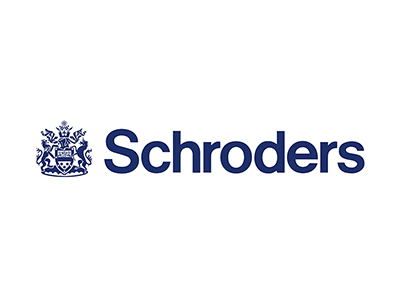A portfolio of high-quality companies operating across Asia
Richard Sennitt is a veteran investor with three decades’ worth of experience
Schroders have a large team of analysts across the region for the managers to make use of
This fund features on our Wealth Shortlist of funds chosen by our analysts for their long-term performance potential
How it fits in a portfolio
The Schroder Asian Alpha Plus fund aims to grow capital over the long-term by primarily investing in large Asian companies from countries such as China, India and Taiwan.
We think the fund could be a good option within the Asian portion of a globally diversified investment portfolio. Investments in emerging markets add risk and the associated volatility should be considered when constructing a long-term portfolio.
Manager
Richard Sennitt has been the fund’s lead manager since March 2021 following the retirement of veteran investor and long-term colleague, Matthew Dobbs. Sennitt joined Schroders in 1993 and has a wealth of experience investing in Asian markets, having managed the Schroder Asian Income Fund since 2001 as well as other Asian income portfolios that are run similarly.
Abbas Barkhordar also became co-manager in 2021 when Dobbs retired. He joined Schroders in 2007, initially as an analyst on the Emerging Markets Equities team. While he has applicable analyst experience, this is one of Barkhordar's first fund management roles.
Both managers are also responsible for the closed-ended Schroder Asia Pacific Fund which invests in a very similar way. Given the overlap in process and investable universe, we think they can comfortably handle this workload.
There are thousands of companies in this part of the market, so the managers have the support of a large team of analysts based across Asia. They help sift through the market and uncover what they believe to be the most promising opportunities.
Process
Sennitt and Barkhordar believe that Asian markets are a stock pickers paradise. Since they tend to be less researched than developed markets there’s plenty of opportunity to uncover hidden gems. They tend to be volatile though and that’s why the managers believe the best way to navigate these risks is by investing in high quality businesses – but without paying too much for them.
To whittle down their large investment universe, the managers work closely with Schroders' Asian equities team to help generate research and ideas for the fund. They look for companies they think can sustain returns over the long run. They should have good cash flows, strong franchises, a quality management team, superior corporate governance standards and a strong business model that's able to defend against competition. Next, they aim to forecast the earnings of each business, which could ultimately influence the direction of the share price.
While the managers mainly focus on individual company analysis, they also consider economic factors to provide broader context to their research. This may involve looking at inflationary trends and monetary policy, amongst other factors.
This results in a portfolio of between 50-60 companies. Over half of the portfolio is invested in financials and technology stocks, with significant investments in TSMC – the largest global semiconductor producer – and Chinese company Tencent.
Geographically, the fund has less invested in China than its benchmark. In contrast, they invest more in Hong Kong where valuations tend to be lower. The fund also has meaningful investments in India and Taiwan.
The managers take a long-term view when making investment decisions which often results in minimal changes to the fund. In the past 12 months they invested in two online travel agents – China’s Trip.com and MakeMyTrip.com in India. Chinese food delivery platform Meituan was another addition to the fund.
To make room for these new companies, the managers sold investments in Vietnam Dairy Products and Indonesia’s PT Bank Negara. They also divested from the Chinese e-commerce business Alibaba over concerns that the sector was becoming too competitive.
The managers can use derivatives which, if used, adds risk. They mainly invest in larger firms but also have the ability to invest in higher-risk smaller companies.
Culture
Schroders is a well-established asset manager with offices all over the world. It believes the importance of Asian and emerging markets in the global economy has increased significantly over the years and expects this to continue. We think Schroders is dedicated to investing in this part of the world and supporting the teams that invest there.
We believe incentivisation for Schroders’ fund managers and analysts is focused on longer-term performance potential and is therefore aligned with their investors. The Asian equities team is based across the UK and Asia, and this remains an important resource for the group’s range of Asian funds.
ESG Integration
Schroders has invested significantly in ESG (Environmental, Social and Governance) resources and tools in recent years. Investment teams have access to a variety of data sources that have been brought together into a proprietary platform called SustainEx, which allows them to quantify a company’s positive and negative contributions to society.
All Schroders funds were required to pass the firm’s inhouse ESG accreditation process by the end of 2020. All new funds must also be ESG accredited, and investment teams must reapply for accreditation on an ongoing basis.
This process is managed by the Sustainable Investment team. They sit on the investment desk and are objective in their approach. There is a set list of criteria that funds must meet to become accredited, and the process is substantial – no fund has ever gained accreditation on the first attempt. Fund managers are also expected to demonstrate improved levels of ESG integration over time.
The Schroders Sustainable Investment team acts as a focal point for ESG, proxy voting, and engagement. When it comes to proxy voting, Schroders has structured policies in place and is transparent on the reasons proposals have been voted against. On the ESG engagement side, the firm’s activities and outcomes are monitored, tracked and reported in its quarterly Sustainable Investment reports. There are also a range of ESG-related insight and thought leadership articles available on the firm’s website.
While the fund managers incorporate ESG factors into their analysis, this is not a sustainable fund.
Cost
This fund is available at an annual ongoing fund charge of 0.96%, but with a 0.08% saving it’s available to HL clients for 0.88%. The HL platform fee of up to 0.45% per year also applies, except in the HL Junior ISA, where no platform fee applies.
Performance
Sennitt has an extensive track record investing in Asia. He’s managed the Schroder Asian Income Fund since 2001, although it’s different from this fund as it aims for income as well as growth. A similar process is used to find investment opportunities though and the universe of companies being researched is similar.
Since Sennitt and Barkhordar were appointed managers of this fund in March 2021 it has returned 6.11%*. This is behind the MSCI AC Asia ex Japan index, which grew 9.32%, and the IA Asia Pacific ex Japan sector, where the average fund returned 9.12%. Past performance isn’t a guide to the future.
Over the past 12 months the fund has returned 14.64%, which is behind the 16.58% growth of the fund’s benchmark but slightly ahead of average returns in the IA sector. Investments in a number of communications companies, including Tencent and Netease in China, benefited the fund’s performance over this period.
In contrast, a sizeable investment in the Korean business Samsung was a detractor to performance. Overall, the fund also suffered from having less invested in China than the benchmark as the Chinese market performed well.
We think the fund has good long-term prospects, though its growth style of investment means it can be more volatile than other funds in the IA Asia Pacific ex Japan sector. That said, there are no guarantees how the fund will perform in future.
Annual percentage growth
August 20 – August 21 | August 21 – August 22 | August 22 – August 23 | August 23 – August 24 | August 24 – August 25 | |
|---|---|---|---|---|---|
Schroder Asian Alpha Plus | 18.12% | -8.05% | -6.70% | 10.17% | 14.64% |
MSCI AC Asia ex Japan | 14.72% | -7.10% | -8.39% | 11.96% | 16.58% |
IA Asia Pacific ex Japan | 17.81% | -4.72% | -7.66% | 9.09% | 14.27% |


